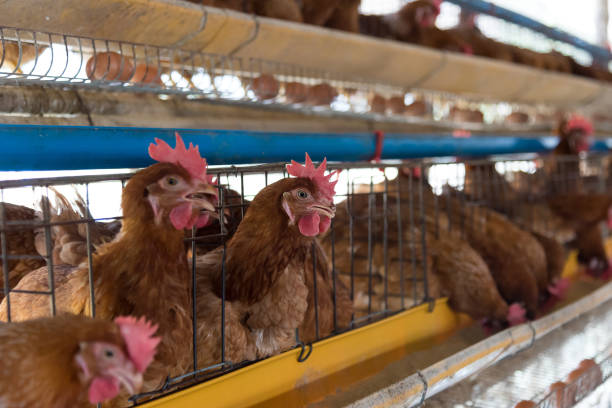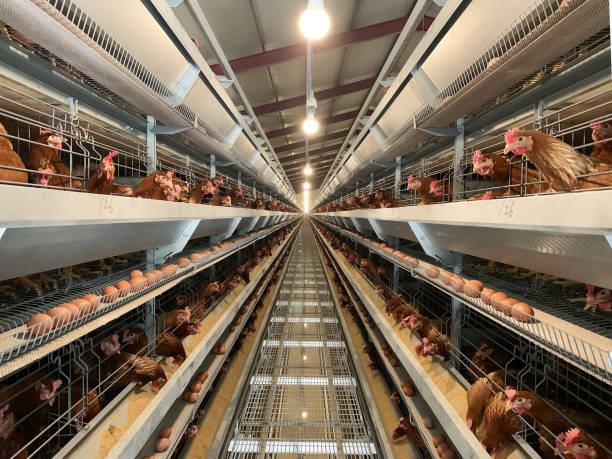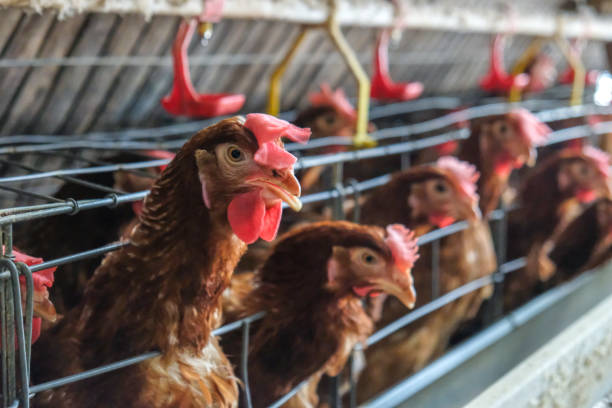
Layers Chicken Farming Solutions in Kenya
Layers Chicken Farming Solutions in Kenya
Kenya is experiencing a surge in demand for eggs and poultry products, making layers chicken farming an increasingly attractive venture for both small-scale and commercial farmers. As urban populations grow and dietary preferences shift toward protein-rich foods, egg production has become a smart agricultural investment. However, success in layer farming doesn’t come from just keeping hens—it requires the right infrastructure, management practices, and long-term planning. That’s where modern, efficient, and scalable farming solutions come into play. At Livi Machinery, we understand the unique challenges of Kenyan farmers and deliver durable, intelligent equipment tailored to local conditions.
One of the biggest hurdles for layer farmers in Kenya is maintaining consistent egg production while managing feed costs, disease control, and labor efficiency. Traditional free-range or deep-litter systems often lead to higher mortality rates, inconsistent egg yields, and difficulty in monitoring flock health. In contrast, battery cage systems—especially modern automated layer cages—offer a game-changing solution. Our layer chicken cages are designed with ventilation, sloped wire mesh for egg collection, and waste removal in mind, ensuring birds remain healthy and productive. Each cage system is made from galvanized steel and anti-corrosion materials, built to withstand the variable weather conditions across regions like Nakuru, Kiambu, or Kakamega. Farmers who upgrade to automated systems report up to a 20–30% increase in egg production and a significant drop in operational losses.
Smart Layer Systems: Efficiency Through Automation
Gone are the days when farming meant hours of manual feeding and cleaning. Today’s successful layer farms in Kenya are adopting automation to reduce labor needs and improve efficiency. Our automated feeding systems ensure that each bird receives the right amount of feed at scheduled intervals, minimizing waste and preventing overfeeding. The automatic drinking water system keeps fresh, clean water available 24/7, drastically reducing the risk of dehydration and waterborne diseases. Even better, our manure removal belts allow droppings to be collected daily without entering the house, improving air quality and lowering ammonia levels—a major cause of respiratory issues in chickens. For farmers managing flocks of 5,000 birds or more, these systems cut down daily workload by up to 60%, freeing time for health monitoring and business development.
Beyond equipment, we offer full-cycle support—from farm design to installation and training. When you partner with Livi Machinery, our experts help you choose the best layout based on your land size, climate, and production goals. Whether you’re setting up in a dry area like Machakos or a highland region such as Nyeri, we customize ventilation and housing structures to suit local temperatures and airflow patterns. This level of personalization ensures your birds stay comfortable year-round, which directly impacts egg output and shell quality. We also guide farmers on lighting programs, vaccination schedules, and biosecurity setups—because even the best equipment can’t replace good management.
How to Scale Your Layer Farm Sustainably
Many Kenyan farmers start small but dream big—and that’s completely possible with the right roadmap. A well-designed cage system allows you to expand in phases, adding modules as profits grow. Instead of rushing into a 20,000-bird facility overnight, begin with a 5,000-unit setup and reinvest earnings into automation upgrades or additional houses. This staged approach reduces financial risk and lets you learn your flock’s behavior and local market demands before going fully commercial.
Feed remains the largest expense in any layer operation, so maximizing feed conversion ratio (FCR) is critical. Our equipment helps optimize this by reducing stress and competition among birds—when every hen has enough space and access to resources, they eat efficiently and lay consistently. We’ve worked with cooperatives in Embu and Meru that pooled resources to install shared feed mills connected to their cage systems, cutting input costs by nearly 15%. Another key tip? Keep detailed records—from egg counts to vaccine dates. Modern farmers use simple apps or notebooks to track performance, helping them spot problems early and make data-driven decisions.
Longevity and durability matter too. Unlike cheaper import models that rust within a year, our cages are hot-dip galvanized after welding—meaning the entire structure, including joints, is protected against corrosion. This adds years to the lifespan of your equipment and saves money in replacements and repairs. We’ve seen farms in Kisumu using the same cage setup for over eight years with minimal maintenance. Plus, since all our components are modular, damaged parts can be replaced individually instead of scrapping the whole unit.
Whether you’re starting fresh or upgrading an old shed, investing in proper layers chicken farming solutions sets the foundation for a profitable, low-stress business. Our goal isn’t just to sell equipment—we want to see Kenyan farmers thrive with smarter, cleaner, and more sustainable operations. From initial consultation to after-sales service, we walk with you every step of the way.

If you’re ready to take your layer farming to the next level, we’d love to hear from you. Share your farm plans, flock size goals, or current challenges with us, and we’ll send a customized setup proposal—complete with pricing, layout options, and a timeline. Don’t let outdated systems hold you back. Let’s build a better chicken farm together.
FAQs
What kind of layer cages do you offer for Kenyan farms?
We offer multiple configurations, including 2-tier, 3-tier, and 4-tier automated cage systems. These are ideal for layer pullets, peak production hens, and older flocks. All models are rust-resistant and suited for Kenya’s varying climates.
Can I install the system myself, or do you provide installation support?
We provide full installation guidance and can send technical staff to supervise setup if needed. We also train your team on daily operation and maintenance to ensure smooth running.
How many hens can fit in one cage module?

Our standard modules house between 60 to 96 birds depending on the model. Birds are given about 550–600 cm² per hen, meeting welfare standards while maximizing space use.
Do you ship to rural areas in Kenya?
Yes, we work with reliable logistics partners to deliver equipment nationwide—including counties like Bomet, West Pokot, and Tana River. Delivery times vary by location but typically range from 14 to 21 days after order confirmation.
Are spare parts easily available if something breaks?
Absolutely. We keep all common parts—such as water nozzles, feeder pans, and belt motors—in stock and can ship replacements quickly. Most components are modular, so you only replace what’s damaged.
Is automation too expensive for small farms?
Not anymore. We offer scalable automation packages that start affordably. You can begin with manual feeding and later upgrade to auto-feeders and manure belts as your income grows.

How does your system improve egg quality?
Reduced stress, consistent lighting, clean water, and proper nutrition—all supported by our system—lead to stronger shells, better internal quality, and fewer cracked or dirty eggs.
Can I integrate solar power with your automated systems?
Definitely. Many of our customers in off-grid areas use solar panels to run feeding motors, ventilation fans, and LED lights. We can advise on compatible setups during planning.
Do you work with women’s groups or farmer cooperatives?
Yes, we actively support group farming initiatives and offer special pricing for collective purchases. We’ve helped several women’s poultry groups set up shared layer farms with joint ownership models.
What’s the expected production life of your layer cages?
With proper care, our cages last 10 years or more. The hot-dip galvanization and sturdy frame design ensure long-term durability, even in humid or dusty environments.
